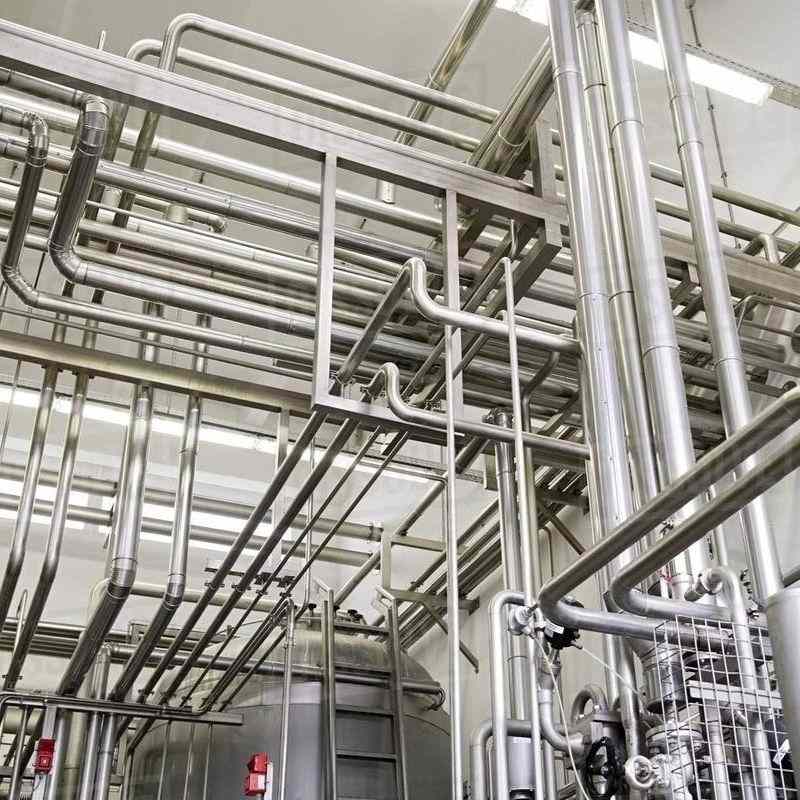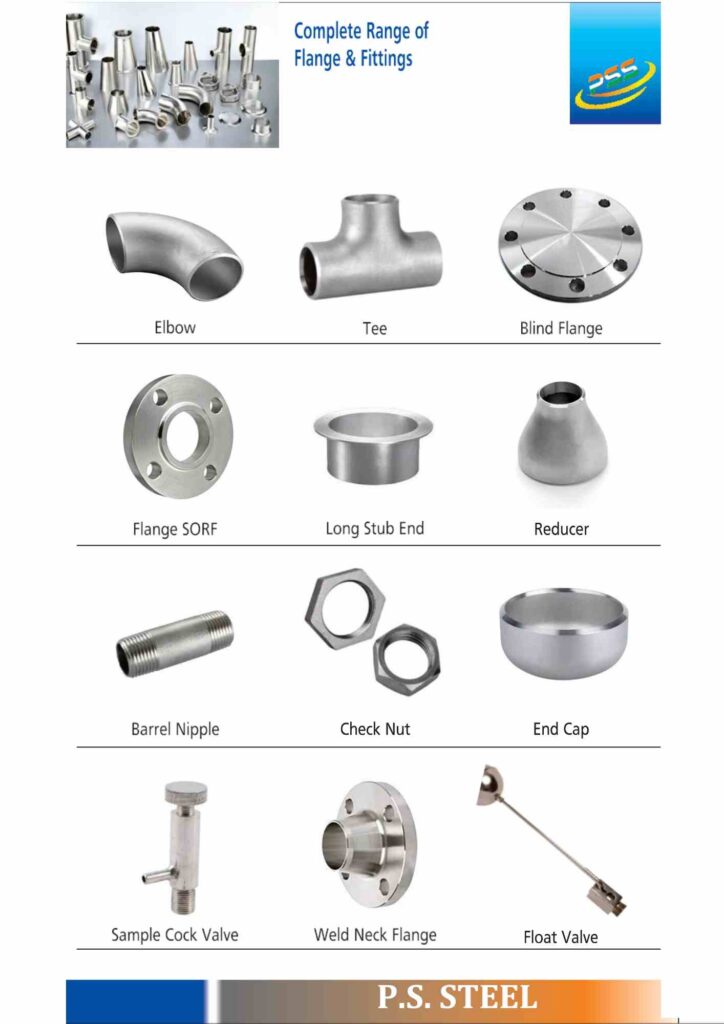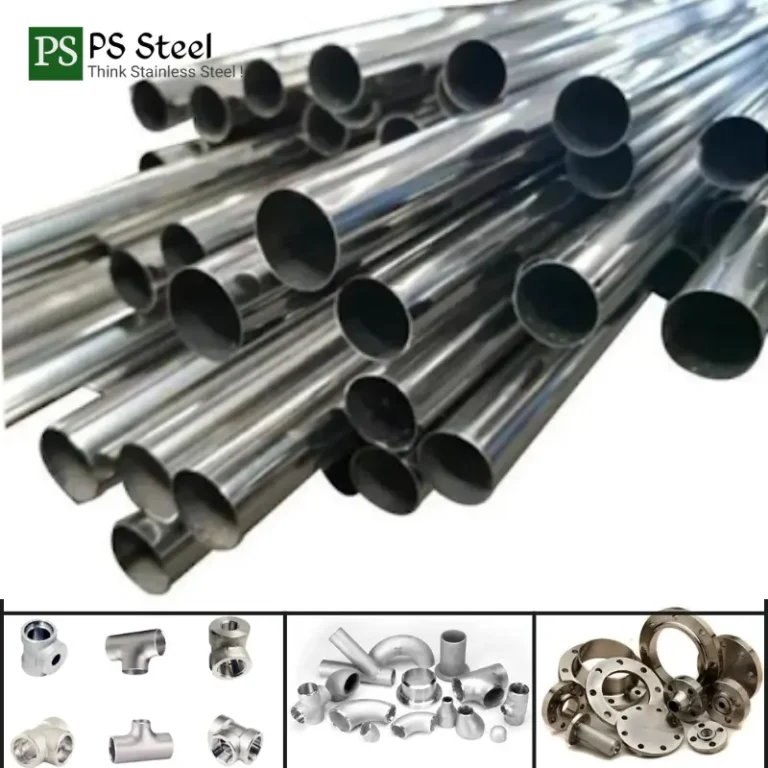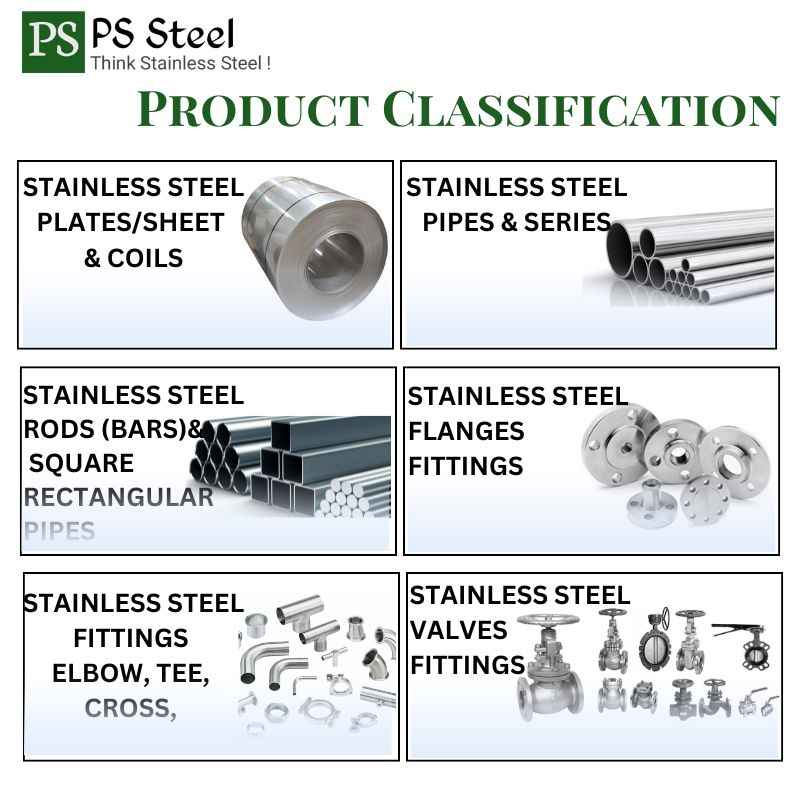Butt Weld Fittings Elbows (90° and 45°) Tees (Equal and Reducing) Crosses Caps
Butt weld fittings are essential components in industrial piping systems, providing secure and leak-proof connections. These robust, versatile fittings are designed to withstand high pressure and temperature demands, making them a popular choice for a wide range of applications.

Pressure Ratings
ASME Ratings
Butt weld fittings are engineered to meet ASME (American Society of Mechanical Engineers) pressure rating standards, ensuring consistent and reliable performance.
Pipe Size Factors
The pressure rating of a butt weld fitting is influenced by the size of the pipe it is designed to connect, with larger pipes typically able to withstand higher pressures.
Material Strength
The material composition of the fitting, such as carbon steel or stainless steel, also plays a crucial role in determining its pressure rating.
Pressure Ratings
Material Composition
The temperature rating of a butt weld fitting is largely determined by the thermal properties of the material it is made from.
Application Conditions
The expected operating temperatures of the piping system are also a key factor in selecting the appropriate temperature-rated butt weld fittings.
Safety Considerations
Ensuring the correct temperature rating is crucial for the safety and reliability of the piping system.
SS Pipe Fittings For Industries
SS Tee Fittings | Stud Ends Fittings | SS Cross Fittngs | Reducing Tee Fittings |
SS U Bend Steel Fittings | SS 90 Degree Elbow Fittings | Seamless Reducers | Lap Joint Stub End Fittings |
SS Y Type Elbow Fittings | SS 180 Degree Elbow Fittings | SS Elbow Pipe Fittings | SS Weld Reducers |
Eccentric Pipe Fittings | Weld Eccentric Pipe Fittings | SS End Cap Fittings | SS Pipe Fittings Elbow |
Factors Affecting Pressure and Temperature Ratings

Material Composition
The type of metal, such as carbon steel or stainless steel, used in the manufacture of the butt weld fitting.
Pipe Size and Schedule
The diameter and wall thickness of the pipe the fitting is designed to connect.
Operating Conditions
The expected pressure and temperature ranges the piping system will be subjected to.
Manufacturing Process
The precision and quality control measures used in the fabrication of the butt weld fitting.
Calculating Pressure and Temperature Ratings
| Nominal Pipe Size (NPS) | Outside Diameter (OD) | Wall Thickness (SCH) | Elbow (Long Radius) | Elbow (Short Radius) | Tee (Equal) | Tee (Reducing) | Reducer (Concentric) | Reducer (Eccentric) | Cap | Stub End |
| 1/2 | 0.84 | 40 | 3/4 | – | – | – | – | – | – | – |
| 3/4 | 1.05 | 40 | 7/8 | – | – | – | – | – | – | – |
| 1 | 1.32 | 40 | 1 1/8 | – | – | – | – | – | – | – |
| 1 1/4 | 1.66 | 40 | 1 3/8 | – | – | – | – | – | – | – |
| 1 1/2 | 1.9 | 40 | 1 5/8 | – | – | – | – | – | – | – |
| 2 | 2.38 | 40, 80 | 2 1/8 | 1 1/2 | 2 1/8 | 2 1/8 | 1 1/8 | 2 1/8 | – | 2 1/2 |
| 2 1/2 | 2.88 | 40, 80 | 2 3/4 | 2 1/4 | 3 1/4 | 3 1/4 | 1 7/8 | 3 1/4 | – | 3 |
| 3 | 3.5 | 40, 80 | 3 3/8 | 2 5/8 | 4 1/8 | 4 1/8 | 2 1/2 | 4 1/8 | – | 3 1/2 |
| 4 | 4.5 | 40, 80 | 4 1/2 | 3 | 5 1/4 | 5 1/4 | 3 1/4 | 5 1/4 | – | 4 |
| 5 | 5.56 | 40, 80 | 5 5/8 | 4 1/2 | 6 1/2 | 6 1/2 | 4 1/8 | 6 1/2 | – | 5 |
| 6 | 6.63 | 40, 80 | 6 3/4 | 5 1/4 | 7 3/4 | 7 3/4 | 5 1/4 | 7 3/4 | – | 6 |
| 8 | 8.63 | 40, 80 | 8 1/2 | 7 | 10 1/2 | 10 1/2 | 7 1/4 | 10 1/2 | – | 8 |
| 10 | 10.75 | 40, 80 | 10 5/8 | 8 1/2 | 12 1/2 | 12 1/2 | 8 1/4 | 12 1/2 | – | 10 |
| 12 | 12.75 | 40, 80 | 12 3/4 | 10 | 15 | 15 | 9 1/8 | 15 | – | 12 |
Pipe Size
Determine the diameter and schedule of the pipe the fitting will be used with.
Operating Conditions
Assess the expected pressure and temperature range the system will experience.
Material Properties
Identify the material composition and strength characteristics of the fitting.
Industry Standards and Regulations
ASME
American Society of Mechanical Engineers standards for pressure vessel and piping systems.
API
American Petroleum Institute standards for the oil and gas industry.
ANSI
American National Standards Institute guidelines for product safety and quality.

Selecting the Appropriate Butt Weld Fittings
Identify System Requirements
Determine the pressure, temperature, and material needs of the piping system.
Review Industry Standards
Consult relevant codes and regulations to ensure compliance.
Choose Suitable Fittings
Select butt weld fittings that meet the specific system requirements.
Installation and Maintenance Considerations
| Proper Welding Techniques | Ensure a strong, leak-free joint during installation. |
| Regular Inspections | Periodically check fittings for signs of wear or damage. |
| Planned Maintenance | Schedule routine maintenance to prolong the life of the system. |

Conclusion and Resources
Butt weld fittings are critical components in industrial piping systems, providing reliable and secure connections. By understanding the factors that affect their pressure and temperature ratings, as well as following industry standards and safety protocols, users can ensure the long-term performance and integrity of their piping systems.
What are SS Pipe Fittings used for?
Connecting, terminating, and controlling fluid flow in pipelines.
What industries use SS Pipe Fittings?
Chemical processing, oil and gas, food processing, pharmaceutical, power generation, and water treatment.
What are the benefits of using SS Pipe Fittings?
Resistance to corrosion, high strength, durability, and low maintenance.
What types of SS Pipe Fittings are available?
Elbows, tees, reducers, unions, couplings, adapters, and valves.
What are the common grades of SS Pipe Fittings?
304, 316, 321, and 347
Can SS Pipe Fittings be welded?
Yes, using various welding techniques like TIG, MIG, and Arc welding.
Are SS Pipe Fittings suitable for high-pressure applications?
Yes, PS Steel is designed to withstand high pressures.
How are SS Pipe Fittings cleaned and maintained?
Using mild detergents, water, and a soft cloth, and avoiding abrasive materials.


